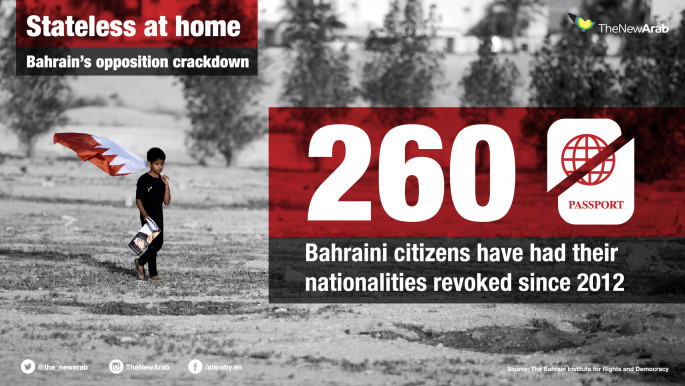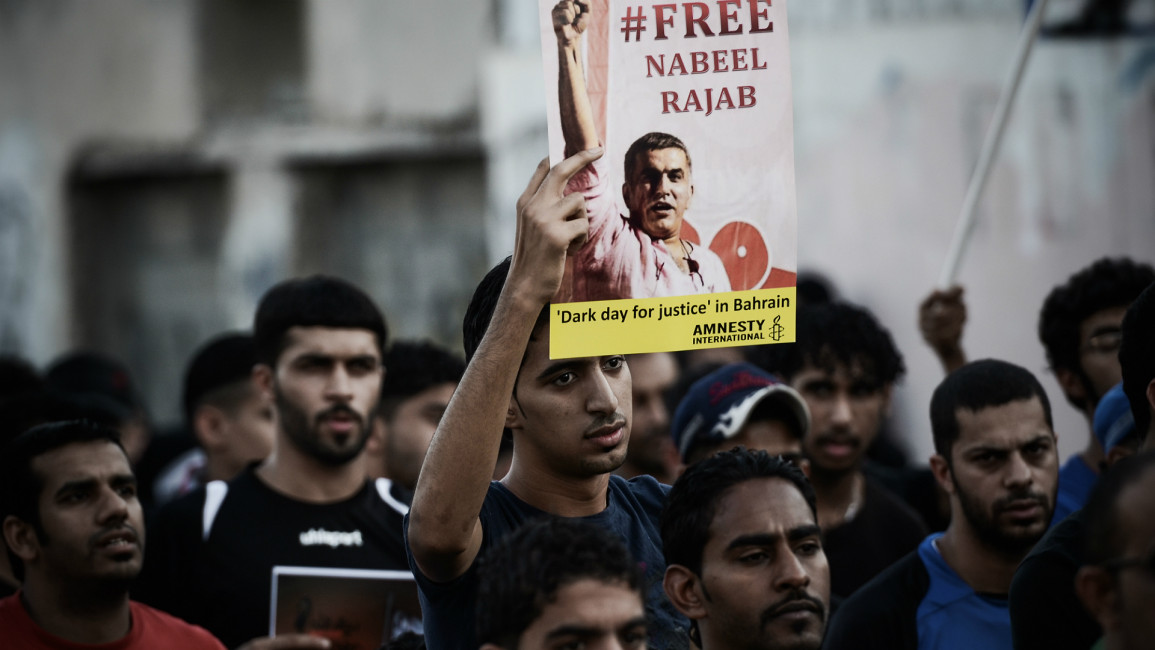Bahraini activist faces 12 years in jail for tweets
Nabeel Rajab is standing trial for sending tweets accusing the Bahraini security forces of torturing detainees and killing civilians in the Gulf bloc's military intervention in Yemen.
The charges against Rajab, head of NGO the Bahrain Center for Human Rights [BCHR] constitute a serious violation of his right to freedom of expression, Human Rights Watch [HRW] said on Wednesday.
"Unlawful Saudi-led airstrikes bombed markets and hospitals, killing hundreds of civilians, but the person facing prison time is the one who criticised them," said Joe Stork, deputy Middle East director at HRW.
Rajab's Twitter comments led to his arrest on 2 April, 2015. Authorities released him on 13 July 2015, but prosecutors did not close the cases and ordered his re-arrest on 13 June this year. His trial began on 12 July with the next session scheduled for 2 August.
Rajab faces up to 10 years in prison under Article 133 of Bahrain's penal code for spreading "false or malicious news, statements, or rumours".
If convicted of "offending a foreign country [Saudi Arabia]", Rajab faces a maximum two-year sentence under article 215 of the penal code.
He could also face an additional three-year sentence under article 216 of the penal code for "offending national institutions". This is based on comments about unrest that broke out in Bahrain's Jaw Prison in March 2015.
"The US and the UK, which have assisted the coalition, have a particular responsibility to insist that Bahrain drop the unlawful charges against Nabeel Rajab and immediately free him,” Stork added.
"If the Bahraini authorities don't like criticism of the Saudi-led airstrikes, they should focus their efforts on ensuring that their Gulf allies don't bomb schools and hospitals," said Stork.
Amnesty International also slammed the case describing it as a "farcical trial."
 |
Unlawful Saudi-led airstrikes bombed markets and hospitals, killing hundreds of civilians, but the person facing prison time is the one who criticised them - Joe Stork, Humans Right Watch |
 |
Arbitrary punishment
Humans Right Watch has also condemned the conditions of Rajab's detention saying it appears to amount to arbitrary punishment.
He was in solitary confinement for more than two weeks after his arrest and was denied compassionate leave to attend a relative's funeral, the organisation said.
Late June, Rajab was hospitalised with an irregular heartbeat and was taken to the cardiac care clinic of the Bahrain Defence Force Hospital after being "in isolation for 15 days".
The 51-year-old was sent back to prison two days later, despite his lawyers warning that his health was "getting worse".
The BCHR issued a statement expressing "great concern for the health and well-being" of its head.
It said "the decline of his physical and mental health are due to his isolated detention since his arrest". It called on the "international community and Bahrain's allies to take urgent and public actions to stand by their commitment to protect human rights defenders".
Increasing crackdown on opposition
Home to the US Navy's Fifth Fleet, Bahrain has been rocked by unrest since security forces crushed Shia-led protests in 2011 demanding a constitutional monarchy and an elected prime minister.
Protesters still frequently clash with police in Shia villages outside the capital, with rights groups repeatedly raising concern over the response of the authorities.
Rajab has been repeatedly detained for organising protests and publishing tweets deemed insulting to Bahrain's Sunni- dominated authorities. The activist previously served two years in jail on charges of taking part in unauthorised protests.
But Rajab is only among dozens that have been detained by authorities in what is understood to be an increasing crackdown on opposition in the kingdom.
In its latest move, Bahrain revoked the citizenship of Sheikh Isa Qassim, considered the community's spiritual leader, accusing him of sowing sectarian divisions.
This prompted a strongly worded letter from Washington criticising its Gulf ally, stating it is "deeply troubled" by the kingdom's judgement and suggested it lead with "reform and reconciliation" as opposed to legal action.
 |
|



